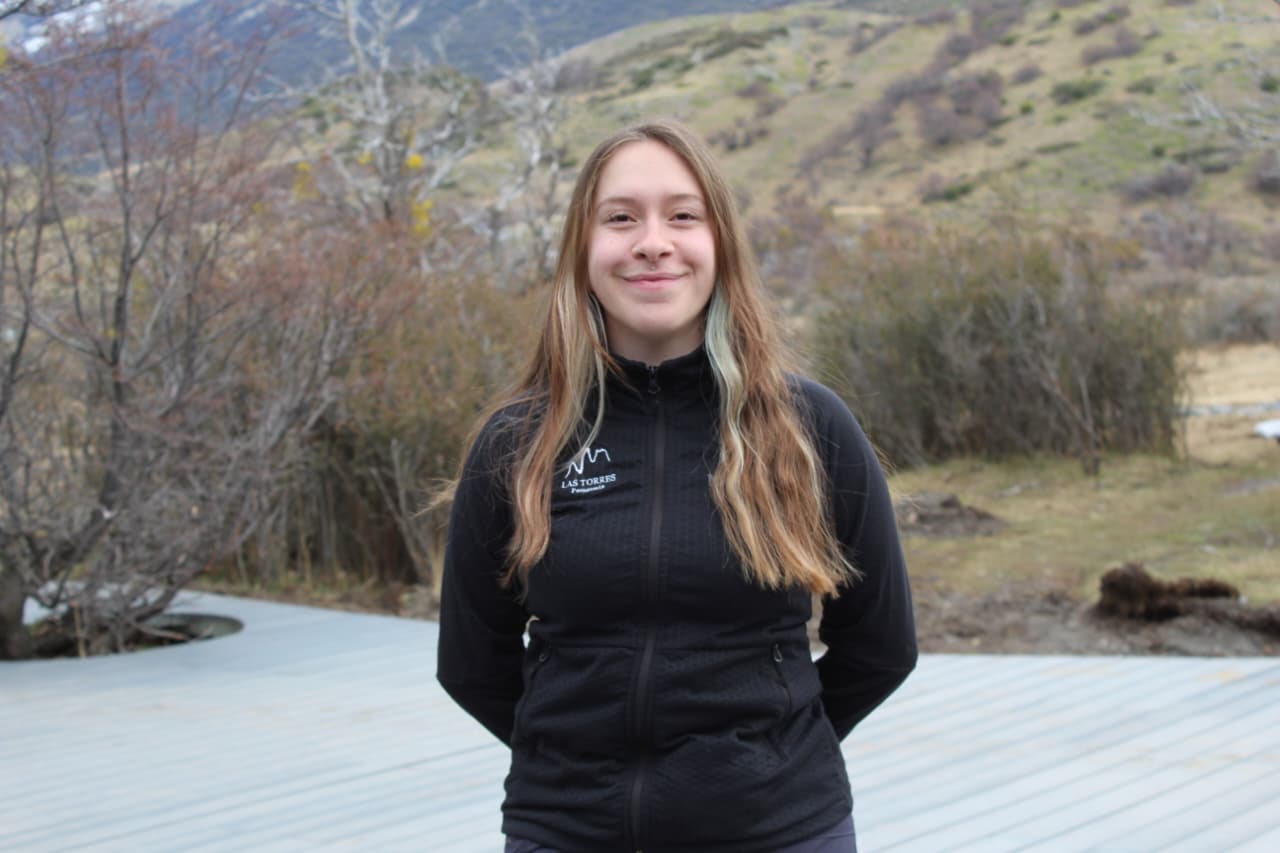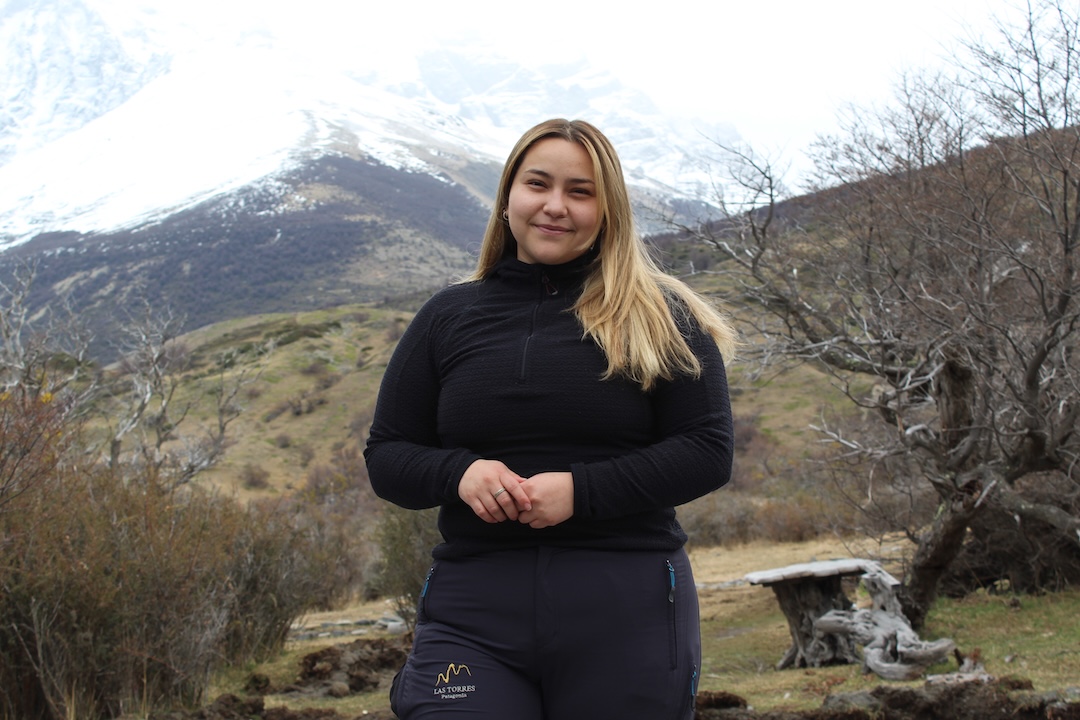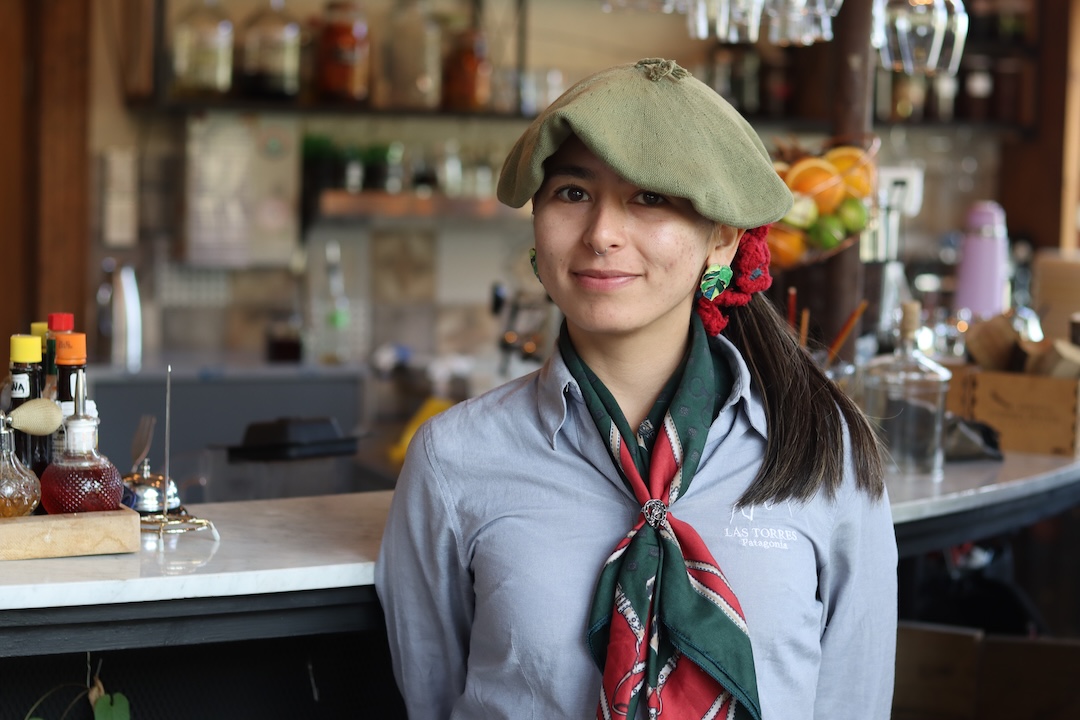Hotel Las Torres has developed a waste management strategy in recent years that integrates its restaurant, bar and garden.
Torres del Paine, September 11, 2025 — During the past season at Hotel Las Torres, organic waste management rose by 29.6% compared to the previous year. This increase is thanks to a unified strategy across different departments with a shared goal: to reduce the hotel’s carbon footprint as much as possible and embrace a circular economy.
This strategy ties together the hotel’s different food production areas – the restaurant, bar and garden – and supports a series of process that follow the “from garden to table and table to garden” model.

Catalina Rojas, agricultural engineer in charge of the Hotel Las Torres bio-intensive garden, located just steps from the main building, has managed the production of fruits, vegetables and herbs free from chemicals and pesticides. A series of initiatives were promoted during the past season under her guidance.
Rojas says that the garden operates under the principle of “being the primary manager of organic waste in the operation, allowing us to reduce the footprint generated by tourism in the area, alongside a sustainable horticultural production that shows it’s possible to grow food even in places as extreme as Patagonia.”
During the past season, the Hotel Las Torres garden produced 2,676.7 kg of fine compost, and 2,074 kg of non-compostable organic waste – such as branches, bark and bones – was processed for use in elevated beds and as ground cover.
These efforts were accompanied by an increase in the variety of crop species produced to more than 50, as well as an 18% rise in horticultural output – by 290 kg – compared to the previous season.
The bio-intensive garden at Hotel Las Torres is currently considering new initiatives, such as building a bio-factory to enhance soil fertility and optimize local resources, increasing the variety and volume of produce for the hotel kitchens, and developing a more interesting gastronomic proposal that uses non-commercial crop species and varieties. “Genetic modification in labs isn’t necessary, because natural variations already exist, like the varieties we’ve worked with, such as lemon basil or holy basil,” Rojas explains.

This new garden produce ends up in the dishes served at Hotel Las Torres’ Coirón Restaurant, where there is new a new line of sustainable initiatives led by Francisca Guzmán, environmental and sustainability engineer. Alongside chef Joaquín Pitta, she has brought a fresh approach to managing the organic waste generated in the hotel’s three kitchens: the restaurant, bar and staff canteen.
Last season, Guzmán led staff training to improve efficiency in sorting recyclable and non-recyclable waste, systematize operational segregation processes, and raise awareness about environmental issues and the importance of these strategies to hotel operations.
Strategies have included reusing empty food and pellet sacks, 580 of which have been repurposed for transporting solid waste and other materials.
Used kitchen oil was also collected and sent for reuse in biofuel production; 1,509 liters of oil were recovered during the past season.
Another initiative from the Coirón team involved using returnable glass jars for jams made by local producers, where 50 jars were returned for reuse.
These efforts produced significant results during the past season: 21.41% of all waste generated was segregated for recycling; nearly 300 kg of plastics were recycled, representing a 1,033% increase compared to the previous season; and overall waste generation dropped by 45%.
Guzmán says these milestones demonstrate that her interest in sustainability has grown. “In school, I actively participated in every available sustainability initiative, often being the only one in my class doing so. One story I like to remember is that they nicknamed me ‘Panchamama’ for my devotion to the Pachamama and my commitment to the planet,” she recalls.
Today, Coirón is looking ahead to creating biomaterials, part of a sustainable innovation line aiming to transform organic waste into biodegradable, reusable materials, contributing to a more responsible future aligned with conservation in Patagonia.

This momentum also shows in the work at the Pionero Bar, where environmental engineer Katherine Romero, together with head bartender Federico Gil, have taken on the challenge of developing a sustainable cocktail menu in the heart of Torres del Paine.
“Since I was very young, I’ve always been drawn to environmental care. I felt a deep connection with nature and a constant curiosity about how our actions affect ecosystems. That sensitivity has grown over the years, nurtured by my curiosity, exposure to natural settings and observing how environmental problems affect both communities and biodiversity,” Romero says.
Since she joined the bar team, waste management projects have been bolstered, including waste separation at the point of origin, the setting up of recycling points, holding awareness talks for different teams and developing strategies to reduce waste generation.
One of the most interesting challenges, she says, has been dealing with beer waste, a material produced in large quantities in the hotel. From that challenge, various valorization strategies were developed, including the use of that waste in making whiskey and gin in-house, as well as in producing artisanal vinegar.
Furthermore, during the past season a dedicated area was set up to professionalize the recycling of glass bottles, transforming them into reusable glasses. To make this possible, specialized equipment was acquired to enable a scaled production of more than 500 glasses per month.
The Pionero Bar is currently evaluating the possibility of gradually replacing all their commercial glassware with recycled glasses made from recovered bottles.
At the same time, the bar has taken an important step towards measuring and managing its carbon footprint, identifying major emission sources in its operations and developing concrete mitigation and compensation plans in line with national and international standards.
“Our goal is not only to reduce our impact, but also to communicate our climate progress transparently, involving all stakeholders in the tourism ecosystem,” Romero explains.
Conservation, sustainability and safety management at Las Torres Patagonia – coordinated by its NGO, Las Torres Patagonia Conservancy – has played a key role by providing the technical, human and strategic support that has made these projects possible.